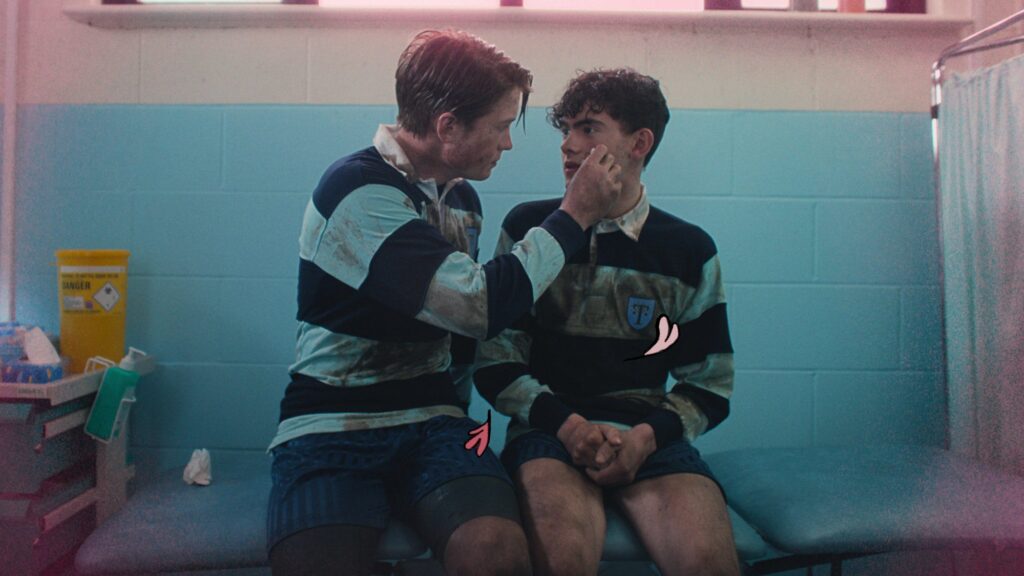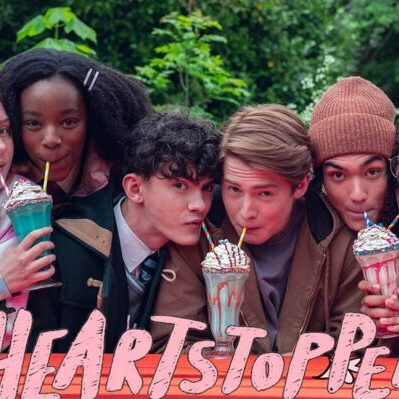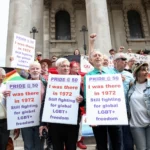Heartstopper: New Netflix Series Helped Curb Offensive LGBTQ+ Media Tropes
Alice Oseman swaps out tragedy for normality in Heartstopper
In May, following its recent debut, the new Netflix series ‘Heartstopper’ was confirmed to release two more seasons in the coming years. The coming-of-age series, adapted from the webcomic and graphic novel of the same name written by Alice Oseman, follows a group of LGBTQ+ teens towards the end of their secondary school experience. It centres around Charlie Spring, a shy, to-himself figure who we are told has been out of the closet since the previous year and his budding relationship with rugby captain Nick Nelson.
The plot follows Nick and his personal journey to discovering his own bisexuality in what is a relatively typical process of discovering one’s sexuality. There are moments of upset, as can be expected when coming to terms with oneself, but Nick’s process is not overly dramatized or made to be tragic. Most importantly, Nick gets the boy and what follows will seemingly be a healthy, happy and typical relationship. The representation is realistic and vast, and for young LGBTQ+ individuals who wish to feel a sense of normality when engaging with media, this is vital.
What Heartstopper does is stray from overused and harmful LGBTQ+ TV tropes. Take the well-loved show ‘The 100’, for example. Creator and executive producer Jason Rothenburg made the destructive decision to kill one-half of the much-beloved WLW couple, ‘Clexa’ (as coined by fans of the show). The death of the popular character Lexa was upsetting in itself, but it also fell into a trope that lesbian characters have faced for years, that they are unnecessarily and abruptly killed.

Heartstopper © Netflix
The trope at hand is known as ‘Bury Your Gays’. It is the presentation of LGBT characters as more expendable than other heterosexual characters. As one can imagine, this distasteful aspect of media does tremendous harm to LGBTQ+ representation. If it’s not enough to lack representation, it is seemingly appropriate to also cloud said representation in tragedy.
A ridiculous notion that rightfully faces backlash from those it offends, ‘Bury Your Gays’ has been fought against amongst TV and film fans in several ways. Perhaps most notably is the non-profit organisation ‘LGBT Fans Deserve Better’. An organisation that was established to carry forth the mission of responsible queer storytelling in film and television. And, because of the death of Lexa specifically, ‘The Lexa Pledge’ was introduced: A pledge that recognised (and aims to combat) that the LGBTQ+ community is underrepresented on television. And, as such, that the tragedy of queer characters has profound psychosocial ramifications.

Heartstopper © Netflix
With that context, it’s clear that Oseman, the producers and even the cast felt it was deeply important to curb such media tropes. Whilst it is unlikely that the death of an LGBTQ+ character would be relevant and therefore included in a teen, coming-of-age series, it is equally important that ‘Heartstopper’ lacks any and all tragic elements. Rather, we as an audience are met with a realistic and heart-warming portrayal of being LGBTQ+ in today’s world. What we are presented with is a supportive mother, a bisexual male, an inter-racial lesbian relationship, supportive friends who are proud in their allyship and a diverse cast, including a Trans woman played by a Trans actor, which is, unfortunately, more surprising than you might think.
Heartstopper is a series that the LGBTQ+ community needed; it offers hope that harmful media tropes might be tossed aside. And, what Oseman and the producers have done is prove that that tossing aside is possible. Production does not need to dramatize or turn the lives of the queer community into a tragedy, there is enough of that in the real world. And, if cis-gender and heterosexual individuals get their fix of escapism within the media, why can’t those that are queer? Why must they look at their portrayal and face death, avoidance and misfortune?
Tragedy is not a necessary plot in queer media. An LGBTQ+ show can simply be pleasant, full of romantic fantasy and representative of real life. It is a show made by and for queer people. And for that, there must be thanks but there must not be a lulling. It should not and cannot stop at Heartstopper, that is the importance of the show.



